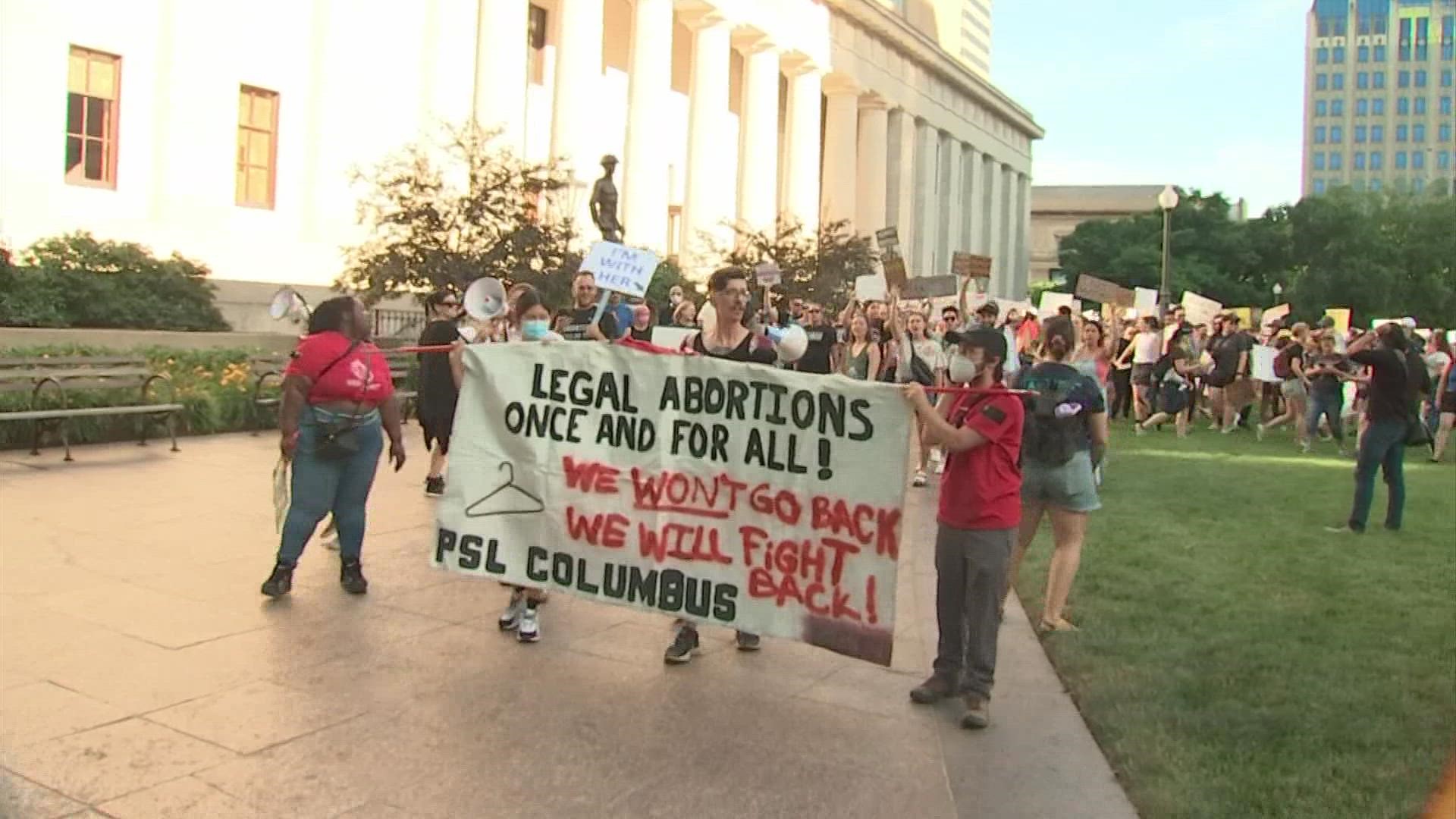COLUMBUS, Ohio — When it comes to enforcement of abortion restrictions – and prosecution that could follow -- in Ohio we found out Monday that the attorney for the city of Columbus will not prosecute patients or medical providers who violate the state's “heartbeat law.”
Signed three years ago, it's now enforced, banning abortions once a heartbeat is detected. That’s about six weeks.
"It's not really our role to get involved with the healthcare decisions between women and doctors," said Columbus City Attorney, Zach Klein.
Klein is among nearly 90 elected prosecutors from across the country to sign a joint statement that said they will decline to prosecute abortion cases against patients and doctors.
"My priorities need to be about protecting public safety and improving the quality of life for families and neighborhoods. And that will be our focus. And I want the citizens of the city of Columbus to know that is my focus," he said.
The signed statement reads in part, "[enforcing] abortion bans would mean taking time, effort, and resources away from the prosecution of the most serious crimes."
Not all Ohio prosecutors are making this pledge.
A statement to 10TV from the Ohio Prosecuting Attorneys Association reads in part, "[prosecutors] are not policymakers. They take an oath to uphold the Constitution of the United States, and the Constitution and the laws of the State of Ohio. They do not get to decide which laws to enforce and which ones not to."
Violation of the “heartbeat law” is a fifth-degree felony.
Klein acknowledges his office wouldn't prosecute those types of cases anyway. He said he is taking a stance if things change.
“All situations involving abortion restrictions are felonies in nature. My office prosecutes misdemeanors, that doesn't mean the legislature will change the law to include misdemeanors so that it would be both felonies and misdemeanors. So I think we have to be proactive and prepared of how we're going to handle these cases,” he said.
Ohio's Heartbeat Law hasn't been enforced for nearly 3 years due to a federal court injunction, until now.
Attorney General Yost filed a motion to have it dissolved, Friday morning -- and it was.
Hours later -- Gov. DeWine signed an executive order for the Ohio Department of Health to adopt rules under the law.
Attorney General Dave Yost declined our request for an interview Monday.
A spokesperson for his office said they anticipate state-court litigation challenging the law and they will work with their client agencies who have a role in enforcement.

